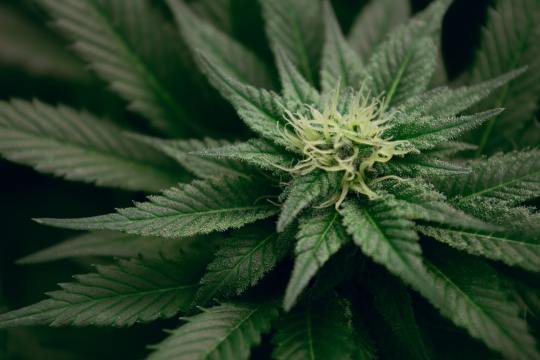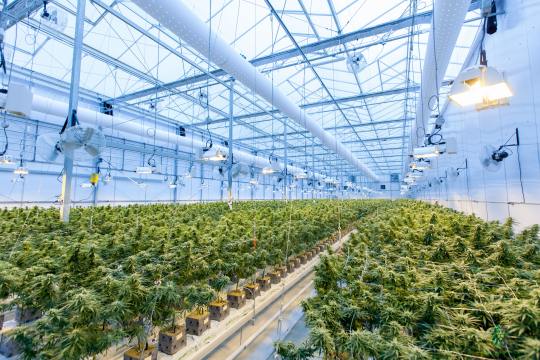Text
Understanding the Regulations Surrounding Cannabis Businesses in British Columbia
British Columbia (B.C.) has made a number of decisions regarding the provincial regulatory framework. The top priorities of British Columbia are to protect children, promote health and safety, keep the criminal element out of cannabis, keep the roads safe, and support economic development.
On February 5, 2018, British Columbia published its B.C. Cannabis Private Retail Licensing Guide, which describes Applications and Operations for individuals and organizations considering applying for a provincial license to retail non-medicinal cannabis.
The Province launched a registration process for individuals and businesses interested in applying for a cannabis retail license in the summer of 2018. Please see the B.C. Cannabis Private Retail Licensing Guide for more information on the cannabis industry in British Columbia and for potential applicants.

Who Can Legally Purchase Marijuana in British Columbia?
The minimum age to possess, purchase, and consume cannabis in British Columbia is 19 years old. A minimum age of 19 is consistent with the minimum age for alcohol and tobacco in British Columbia, as well as the age of the majority in the Province.
How Is Cannabis Obtained? Private and public retail establishments
When recreational cannabis (pot/weed) becomes legal in Canada, British Columbians of legal age will be able to purchase non-medical cannabis from privately run retail stores or government-run retail stores, as well as online sales. The public retail stores will be operated by the B.C. Liquor Distribution Branch (LDB), while the Liquor Control and Licensing Branch (LCLB) will be in charge of licensing private stores and monitoring the retail sector. The operating rules for public and private retail stores will be similar to those in place for liquor stores. In cities, licensed retailers will not be able to sell cannabis alongside liquor or tobacco.
Rural Regions
The government of British Columbia recognizes that providing retail access to people in rural areas will necessitate a different approach than that used in urban communities and will create exceptions for rural non-medical cannabis retail stores, similar to those found in rural liquor stores.
Wholesalers/Distributors
British Columbia, like many other provinces, will have a government-run wholesale distribution model. The LDB will be British Columbia's sole wholesale distributor of non-medical (recreational/adult use) cannabis.
Online/Website Sales
At this time, the public retailer will be the only one permitted to sell non-medical cannabis products online. In the future, it may be considered to allow private online sales.
Edibles and Non-Cannabis Products
Only licensed retail outlets (dispensaries) will be allowed to sell non-medicinal cannabis. They will initially be prohibited from selling anything other than cannabis accessories. A cannabis accessory is defined as "a thing, including rolling papers or wraps, holders, pipes, water pipes, bongs, and vaporizers, that is represented to be used in cannabis consumption or a thing that is represented to be used in cannabis production."
At this time, the proposed federal Cannabis Act does not permit the commercial production of edibles. As a result, you cannot legally sell them. According to the federal government, edibles will be regulated within 12 months of legalization.

Licensing
Details on retail licensing and establishing a retail cannabis outlet (dispensary) were published in the B.C. Government's website in the summer of 2018 if you are an entrepreneur interested in how to open a dispensary in B.C.
Cannabis Bars
At this time, cannabis lounges and cannabis cafes will not be licensed. This type of license will be considered by the Province at a later date.
Where Can You Get Cannabis?
Adults will be able to use non-medical cannabis in public places where tobacco smoking and vaping are permitted. To reduce child and adolescent exposure to smoking and to vape, non-medical cannabis will be prohibited in areas frequented by children, such as community beaches, parks, and playgrounds. Cannabis use in any form will also be prohibited for all vehicle occupants.
Local governments, as they do now for tobacco use, will be able to impose additional restrictions. Furthermore, landlords and strata councils will be able to limit or prohibit non-medical cannabis smoking and vaping in rented and strata properties.
Cannabis cultivation
B.C. will follow suit with proposed federal legislation, allowing adults to grow up to four cannabis plants per household, but the plants must not be visible from public spaces outside the property. Non-medical cannabis cultivation at home will be prohibited in daycare facilities. Landlords and strata councils will also be able to restrict or prohibit home cultivation.
Furthermore, under the proposed Cannabis Act, all producers of cannabis (grow op) or cannabis products will be required to be federally licensed in order to operate. Following the proposed Act's implementation, the Government of Canada will establish application processes and criteria for individuals or entities interested in becoming legal cannabis producers.
Cannabis Possession
Adults aged 19 and up will be permitted to possess up to 30 grams of non-medical cannabis in public, which corresponds to the federal government's proposed adult possession limit.
Those under the legal drinking age of 19 will be barred from possessing any amount of non-medical cannabis. Furthermore, cannabis transported in a motor vehicle must be in a sealed package or be inaccessible to vehicle occupants.
Conclusion:
In order to get a dispensary license in British Columbia, you must have your business licensed according to the laws of the Province and comply with all necessary regulations. Additionally, you must adhere to Canada's proposed Cannabis Act which requires that all producers obtain a federal license in order to operate legally. Furthermore, you will need to be aware of the restrictions around cannabis use and cultivation that have been put in place to reduce child and adolescent exposure. With the right information and a plan, you can safely open a dispensary in B.C.
0 notes